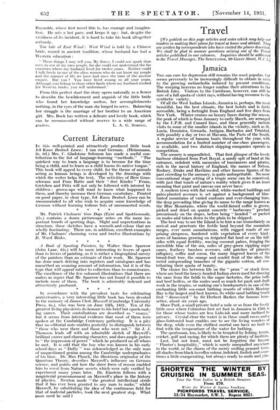In accordance with the prevalent taste for celebrating anniversaries, a
very interesting little book has been devoted to the memory of James Clerk Maxwell (Cambridge University Press, 6s.), who was born on June lath, 1831. Ten of the greatest living physicists do honour to his brief but epoch-mak- ing career. Their contributions are described as essays," but it seems from internal evidence that most of them were spoken at the Cambridge Centenary gathering. It is a pity that no editorial note enables posterity to distinguish between " those who were there and those who were not." Sir J. J. Thomson leads off with an admirable sketch of Maxwell's brilliant career and charming character, and does ample justice to the impression of power " which he produced on all whom he met. It is odd that the boy who was known in his early school-days as " Dafty " was acknowledged as the only man of unquestioned genius among the Cambridge undergraduates of his time. Dr. Max Planck, the illustrious originator of the Quantum Theory, describes Maxwell's influence on German science, and points out how the sheer force of reason enabled him to wrest from Nature secrets which were only verified by experiment many years later. Dr. Einstein follows with a magisterial pronouncement on Maxwell's place in the history bf physics. Newton made " the greatest intellectual stride that it has ever been granted to any man to make," whilst Maxwell, by substituting the idea of the continuous field for that of -material particles, took the next greatest step. What More need be said ?


































 Previous page
Previous page